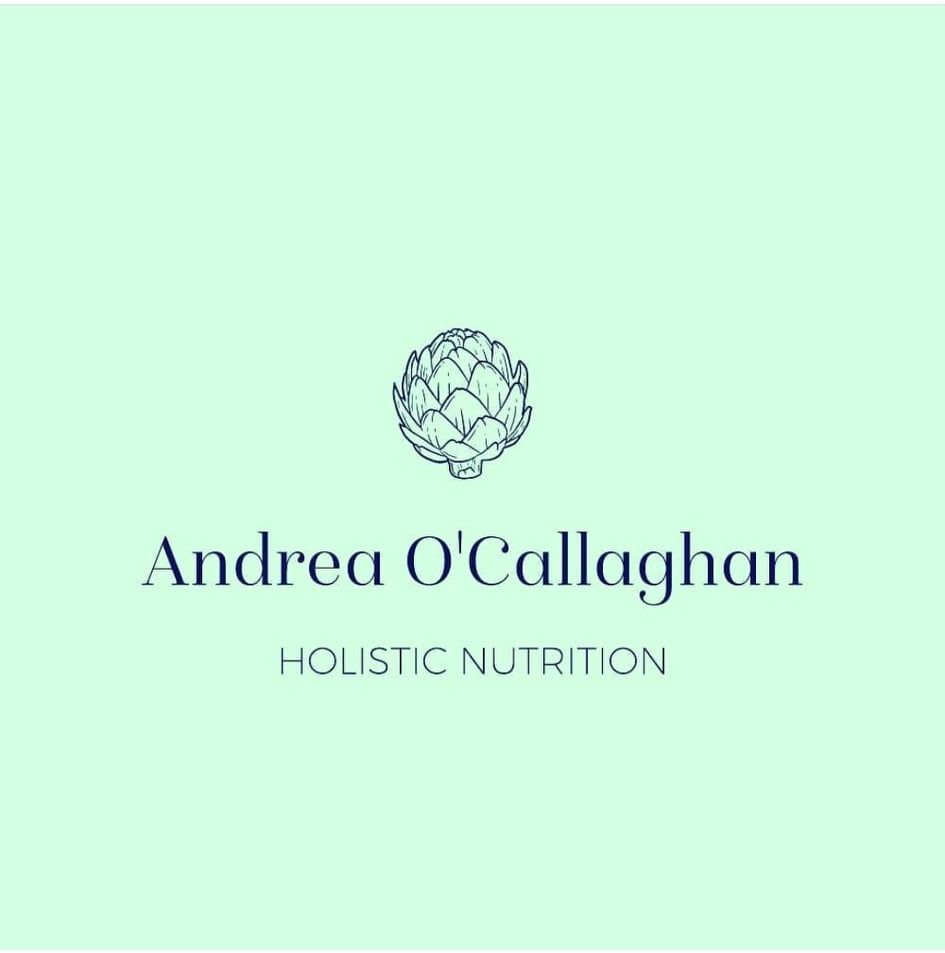Tips for Choosing Supplements Wisely
Andrea O'Callaghan • May 2, 2020
We all know the vast array of supplements on the market today. It seems that new ones are launched every day and there is more and more marketing lingo that promises to save your health.
But you are a savvy health-conscious consumer. You want to make sure you're making wise choices with your health (and money).
Here are eight expert tips for you when choosing supplements:
Tip #1: If you’re in a country that licenses or pre-approves supplements (like I am in Canada), then make sure you’re getting the real thing, and not some illegally imported bootleg of a product.
Why?
This is your health, and it’s important enough to make sure you’re getting a product that at least meets the minimum requirements in your country. There are always recalls and safety alerts issued for contaminated supplements, or products that don’t even contain what they say they do.
Don't get me wrong! This health authority approval is not a perfect gauge of quality, but it does have some benefits worth considering.
How?
In Canada, you would check its approval by making sure it has an 8-digit “NPN” number on the front label. This number means that the company meets the required standards (including quality standards and truthfulness of their labelling). And, if something does go wrong, there is someone who you can complain to (the company or Health Canada's MedEffect program) and who is responsible (the company).
If you’re not in a country that pre-approves supplements, make sure what you buy meets the regulations of your country. If you have to look up the company or product online or call them, please do it – don’t be afraid to ask the hard questions before you use any health products. If the only address or phone number is not in your country, then steer clear, because if something goes wrong it’s possible that nothing can be done about it.
Tip #2: Read (and heed) the warnings, cautions and contraindications.
Why?
You don't want a reaction, right?
How?
Check the label for things like:
• To consult a healthcare practitioner if you're pregnant or breastfeeding, or
• If you have certain medical conditions (e.g. high blood pressure, auto-immune disease, diabetes, ulcers, etc.), or
• If you are taking certain medications (e.g. like blood thinners or immune suppressants, etc.) or
• If you are taking other supplements, or
• If you shouldn't take it for more than a certain length of time (e.g. 6 or 8 weeks).
Tip #3: Look at the medicinal and non-medicinal ingredients for things you might be allergic to, or have reacted to in the past.
Why?
Just as you would do this with foods, do this with supplements. Again, you don't want a reaction, right?
And even if you've used a product before, check it each time you buy it. Manufacturers may make changes to ingredients from time to time.
How?
Any credible supplement company will list every active ingredient, as well as the inactive ingredients. The print may be small, but worthwhile.
Info not there? Give them a call. Most reputable companies have a toll-free number on the bottle, or at the very least their website address.
PRO TIP: You can look up any Canadian NPN number on Health Canada's database here:
Tip #4: Read the labelled “Indications” or “Uses” (a.k.a. How can this product help me?).
Why?
Bullshit alert. What is the company claiming that their product can help you with? Beware of people who tell you that this product can help you beyond what’s on the label. If they heard about it, or found it in a book, that may or may not be reliable information.
How?
Ask for scientific studies, or look it up on credible websites that don’t make money from selling supplements (such as Examine, or the NIH Office of Dietary Supplements).
Tip #5: What “dose forms” can you get (i.e. tablets, capsules, powder, liquid, etc.)?
Why?
I personally prefer capsules. This is because tablets and caplets are not very easy to absorb because they’re compacted into a hard rock-like form that sometimes doesn't break down in your digestive system.
Powders and liquids are easier to swallow and to absorb, but they can go “off” quicker because every time you open the bottle, you’re exposing all of the contents to the oxygen, moisture and microbes in the air. They can also be difficult to get accurate dosing (especially if they need to be shaken well).
Capsules (my preferred form) are powders placed into tiny dissolvable...capsules. You can get vegan capsules or gelatin capsules. They’re not compressed, so they're more easily absorbed (they're still loose powder), and the capsule itself provides an extra layer of protection from oxidation and contamination from the air.
How?
The front label should mention this loud and clear. Along with how many are in each bottle.
Tip #6: How much/many do you need for a recommended dose?
Why?
This is important to keep in mind because you may not want to take several capsules per day in order to get the recommended dose. Plus, many (but not all) bottles contain a 30 day supply. This helps you see how much you need to take, as well as the real cost per serving/dose.
How?
Read carefully.
Is the label information based on one capsule, two...maybe six? The amounts of each nutrient listed on the label may be based on each dose, or the entire daily dose.
For example, if a label recommends you take 2 capsules per day, the active ingredient amounts listed may be the total amount in those 2 capsules, unless it says "per 1 capsule".
Yes, for this one you do need to read carefully.
Tip #7: Check the storage requirements and expiry date.
Why?
These two go hand-in-hand because the expiry date is based on how that supplement degrades over time at certain temperatures, humidity and light exposure.
How?
If the bottle says that it should be refrigerated, make sure it’s in the fridge at the store, or shipped in a refrigerated truck.
If it says to refrigerate after opening, then make sure once that seal is broken, you keep it in your fridge.
If it says to keep out of sunlight, make sure the store/shipping company is doing that, and that you do that too. This is sometimes why supplements are in dark or opaque bottles – to prevent sunlight from degrading it before the expiry date.
And, of course, I wouldn't recommend taking supplements past their expiry date. After this date the manufacturer does not guarantee the quality or dose of the product.
Tip #8: If you’re trying a new supplement for the first time, start slow.
Why?
Keep an eye out for both positive and negative reactions, and act accordingly.
How?
You don’t have to dive right into a full daily dose on day 1. Try starting with half-doses, or skipping days for a week or two before ramping up to the recommended dose.
I hope these eight tips serve you well!

The formula is simple: Diverse diet = Diverse microbes = Good health . That is all we have to do help improve our gut health. The problem is we do not have a diverse diet. I remember when I used to eat the same thing for breakfast EVERY DAY when I was in high school, for example (we won't dwell too long on the fact that it was cinnamon sugar toast) . Even as I got more health conscious and upgraded my breakfasts to include smoothies, I would make a smoothie every morning! Definitely an improvement over cinnamon sugar toast, but the same thing every day is not ideal, either. This is not just about a processed diet vs whole food diet. Yes, a processed food diet is bad for our good microb es, but a whole food diet that is not diverse can also be problematic for the diversity of our gut. Most of us consume no more than 15 different foods in a week. This is not diversity, even if we hit all the food groups. Then there are those who choose to el iminate food groups such as grains and legumes. T his is taking out a range of substantial foods that will feed many beneficial bacterial species. And believe it or not, there are still people – adult people – who refuse to eat vegetables, and they are prou d of it. Again, vegetables represent all kinds of foods that will feed a lot of different species. This is just basic diversity, and it gets more complicated. So not only do we all need to be more adventurous and try to eat different foods, we need to eat d ifferent varieties of the same food. This is one of biggest changes we have had in our diets that make us different from our ancestors. They ate a greater variety of foods than we eat today, and they grew different varieties of the same food. This was g ood for the soil, it helped protect them against potential crop loss, and it increased the nutrients available to them in their diet. J ust like with money, it is important to diversify. Today, agriculture does not function that way. Farmers grow few crop types, and seldo m do they grow more than one variety of the same crop. There are over 6000 varieties of tomatoes – each one has different properties and a different nutrient composition!! We are missing out on a lot. And while we cannot possibly consume 6000 different vari eties, we can expand our repertoire, especially in the summer, and seek out as many varieties as we can find. Heirloom varieties are something I get really excited about when it comes to growing things in my own garden. So while researchers continue to unravel the mystery of our gut and figure out what we should feed it, specifically for specific benefits, we can d o more to increase the diversity and build a stronger gut by eating new foods. This week, buy three new foods you do not eat regularly. They can be foods you have never had or foods you like but for some reason never buy. Here are a few things you can do t o diversify: Buy yellow or rainbow beets instead of red beets. Choose purple or white carrots instead of orange. Look for heritage varieties and buy them when you find them. Go to farmer’s markets and talk to the local farmers. Generally, these are the farmers who still grow a variety of crops. Let them know you are interested in trying different varieties of tomatoes or potatoes etc. Shop at ethnic stores and look for new grains and legumes. Go to ethnic restaurants - this way someone else can prepare the foods for you. Think of the fun and adventure you can have – you and your microbes will be happier!! Reference: Mark L. Heiman, Frank L. Green way. A healthy gastrointestinal microbiome is dependent on dietary diversity. Molecular Metabolism, 2016; DOI: 10.1016/j.molmet.2016.02.005


